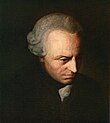1804 in Germany
List of events
| |||||
| Decades: |
| ||||
|---|---|---|---|---|---|
| See also: | Other events of 1804 History of Germany • Timeline • Years | ||||
Events from the year 1804 in Germany.
Incumbents
Holy Roman Empire
- Francis II (5 July 1792 – 6 August 1806)
Important Electors
- Baden- Charles Frederick (27 April 1803 – 6 August 1806)
- Bavaria- Maximilian I (16 February 1799 – 6 August 1806)[1]
- Saxony- Frederick Augustus I (17 December 1763 – 20 December 1806)[2]
- Württemberg - Frederick I (1803 – 30 October 1816)[3]
Kingdoms
- Kingdom of Prussia
- Monarch – Frederick William III of Prussia (16 November 1797 – 7 June 1840)[4]
Grand Duchies
- Grand Duke of Mecklenburg-Schwerin
- Frederick Francis I (24 April 1785 – 1 February 1837)[5]
- Grand Duke of Mecklenburg-Strelitz
- Charles II (2 June 1794 – 6 November 1816)[6]
- Grand Duke of Oldenburg
- Grand Duke of Saxe-Weimar
- Karl August (1758–1809) Raised to grand duchy in 1809
Principalities
- Schaumburg-Lippe
- George William (13 February 1787 – 1860)
- Schwarzburg-Rudolstadt
- Louis Frederick II (13 April 1793 – 28 April 1807)[8]
- Schwarzburg-Sondershausen
- Günther Friedrich Karl I (14 October 1794 – 19 August 1835)
- Principality of Lippe
- Leopold II (5 November 1802 – 1 January 1851)[9]
- Principality of Reuss-Greiz
- Heinrich XIII (28 June 1800 – 29 January 1817)
- Waldeck and Pyrmont
- Friedrich Karl August (29 August 1763 – 24 September 1812)
Duchies
- Duke of Anhalt-Dessau
- Leopold III (16 December 1751 – 9 August 1817)[10]
- Duke of Saxe-Altenburg
- Duke of Saxe-Hildburghausen (1780–1826) - Frederick[5]
- Duke of Saxe-Coburg-Saalfeld
- Francis (8 September 1800 – 9 December 1806)
- Duke of Saxe-Meiningen
- Bernhard II (24 December 1803 – 20 September 1866)[11]
- Duke of Schleswig-Holstein-Sonderburg-Beck
- Frederick Charles Louis (24 February 1775 – 25 March 1816)[12]
Other
- Landgrave of Hesse-Darmstadt
- Louis I (6 April 1790 – 14 August 1806)[5]
Events
- 17 March – Friedrich Schiller's play Wilhelm Tell, is first performed at Weimar, under the direction of Johann Wolfgang von Goethe.[13]
- 9 June – Beethoven's Symphony No. 3 in E–flat premiered in Vienna.
- 11 August – In reaction to Napoleon being proclaimed emperor of France, Francis II assumes the title of a hereditary emperor of Austria (as Francis I) in addition to his title as emperor of the Holy Roman Empire. Tis latter title will become obsolete two years later when the formation of the Confederation of the Rhine instigated by Napoleon signals the end of the Holy Roman Empire.
- 1 September – German astronomer K. L. Harding discovers the asteroid Juno.
- German pharmacist Friedrich Sertürner first isolates morphine from opium,[14][15] probably the first ever isolation of a natural plant alkaloid.
- German Gerhard Bonnier begins a publishing business in Copenhagen (Denmark) by issuing Underfulde og sandfærdige kriminalhistorier, origin of the Swedish Bonnier Group.[16]
Births

- 12 February – Heinrich Lenz, Russian-born Baltic German physicist (died 1865)
- 5 April – Matthias Schleiden, German botanist (died 1881)
- 5 June – Robert Schomburgk, German-born explorer (died 1865)
- 28 July – Ludwig Feuerbach, German philosopher (died 1872)
- 8 September – Eduard Mörike, German poet (died 1875)
- 24 October – Wilhelm Eduard Weber, German physicist (died 1891)
- 10 December – Carl Gustav Jacob Jacobi, German mathematician (died 1851)
Deaths

- 12 February – Immanuel Kant, German philosopher (born 1724)
- 25 May – Johann Joachim Spalding, German theologian (born 1714)
- 1 November – Johann Friedrich Gmelin, German naturalist (born 1748)
- 5 November – August Friedrich Oelenhainz, German painter (born 1745)
- 9 December – Wilhelm Abraham Teller, German theologian (born 1734)
- unknown date – Peter Haas, German-Danish engraver (born 1754)
References
- ^ Chisholm, Hugh, ed. (1911). "Maximilian I., king of Bavaria" . Encyclopædia Britannica. Vol. 17 (11th ed.). Cambridge University Press. p. 921.
- ^ "General German Biography - Wikisource". Retrieved 24 January 2021.
- ^ David, Saul (1998). Prince of pleasure : the Prince of Wales and the making of the Regency. New York : Atlantic Monthly Press. ISBN 978-0-87113-739-5. Retrieved 24 January 2021.
- ^ "Frederick William III". Encyclopaedia Britannica. 30 July 2018.
- ^ a b c Genealogie ascendante jusqu'au quatrieme degre inclusivement de tous les Rois et Princes de maisons souveraines de l'Europe actuellement vivans [Genealogy up to the fourth degree inclusive of all the Kings and Princes of sovereign houses of Europe currently living] (in French). Bourdeaux: Frederic Guillaume Birnstiel. 1768. p. 38.
- ^ Huish, Robert (1821). Public and Private Life His Late Excellent and most Gracious Majesty George The Third. T. Kelly. p. 170.
- ^ a b "Oldenburg Royal Family". Monarchies of Europe. Archived from the original on 17 March 2006. Retrieved 1 January 2021.
- ^ Apfelstedt, F.; Apfelstedt, Heinrich Friedrich Theodor (1996). Das Haus Kevernburg-Schwarzburg von seinem Ursprunge bis auf unsere Zeit. Thüringer Chronik-Verlag Müllerott. ISBN 978-3-910132-29-0.
- ^ Almanach de Gotha (87th ed.). Justus Perthes. 1850. p. 38.
- ^ J. Morley, "The Bauhaus Effect," in Social Utopias of the Twenties (Germany: Müller Bushmann press, 1995), 11.
- ^ "Biografie Georg I (German)". Meininger Museen. Archived from the original on 15 September 2011. Retrieved 8 September 2014.
- ^ Albinus, Robert (1985). Lexikon der Stadt Königsberg Pr. und Umgebung (in German). Leer: Verlag Gerhard Rautenberg. p. 371. ISBN 3-7921-0320-6.
- ^ Who is this Schiller Now? Essays on His Reception and Significance. Camden House. 2011. p. 313. ISBN 9781571134882.
- ^ Serturner, F. W. A. (1806) J. Pharm. f. Arzte. Apoth. Chem. 14 47–93.
- ^ Meyer, Klaus (2004). "Dem Morphin auf der Spur". Pharmazeutischen Zeitung (in German). GOVI-Verlag. Retrieved 12 June 2012.
- ^ Creating Nordic Capitalism: The Development of a Competitive Periphery. Palgrave Macmillan. 16 September 2017. pp. 78–. ISBN 978-1-137-07137-8.













